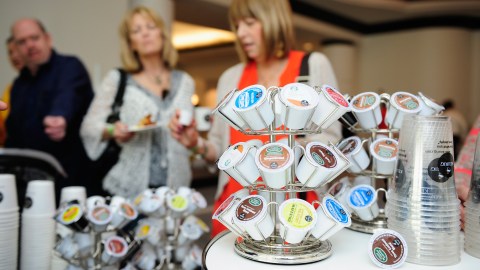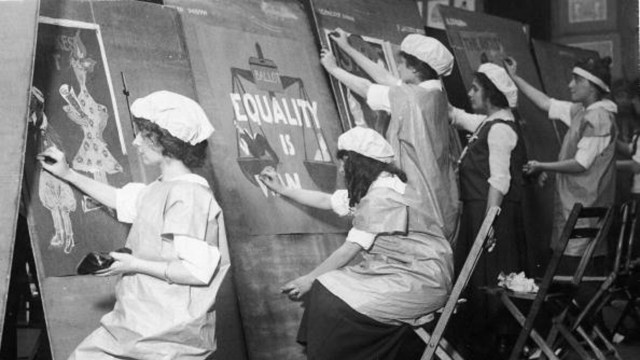One City Dares to Ban Coffee Pods

Keurig has changed the way people drink coffee. It has transitioned a $20 billion industry from brewing an entire pot to a convenient, single-serve pod system. One out of every three American homes has a Keurig. However, its popularity has caused a mass of waste to accumulate, as the pods themselves are not recyclable or biodegradable.
The wasteful design of these coffee pods has caused the German city of Hamburg to ban the use of “Kaffeekapselmaschine,” or coffee capsule machines, from its state-run offices.
“These portion packs cause unnecessary resource consumption and waste generation, and often contain polluting aluminum,” Jan Dube from the Hamburg Department of the Environment and Energy told the BBC. “The capsules can’t be recycled easily because they are often made of a mixture of plastic and aluminum. It’s six grams of coffee in three grams of packaging. We in Hamburg thought that these shouldn’t be bought with taxpayers’ money.”
The move is part of a larger city plan to make Hamburg more sustainable. The decision also shows the government’s commitment to greener living. Not many people would sacrifice their daily cup of coffee for the greater good.
It’s a “vote with your dollar” approach that may help the pod problem get traction at a local level. The path to change begins when someone decides to take action.
“With a purchasing power of several hundred millions of euros per annum, the city can help ensure that environmentally harmful products are purchased less frequently,” Jens Kerstan, Hamburg’s senator for the environment, said.
The decree makes Hamburg the first city in the world to ban coffee pods from state-run buildings.
Coffee capsules are mostly made from plastic no. 7, which contains a mixture only a few recycling facilities in Canada are able to process, or plastic no. 5, which requires consumers to mail-in their pods.
Keurig has said it’s working toward releasing a 100 percent recyclable K-Cup by 2020.
“To achieve our goal we are working on the design of the pods as with recycling and plastics industry experts,” a spokesperson from Keurig told BigThink in an email.
Still, that’s four more years of waste and a mail-in recycling program isn’t optimal, and consumers need something easier and more direct than a mail-in recycling program.
***
Photo Credit: Sergi Alexander/Getty Images
Natalie has been writing professionally for about 6 years. After graduating from Ithaca College with a degree in Feature Writing, she snagged a job at PCMag.com where she had the opportunity to review all the latest consumer gadgets. Since then she has become a writer for hire, freelancing for various websites. In her spare time, you may find her riding her motorcycle, reading YA novels, hiking, or playing video games. Follow her on Twitter: @nat_schumaker




